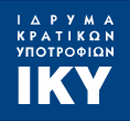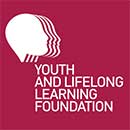The project falls under Key Action 1 and more precisely under sub-action “Mobility for youth workers”. The objectives of “Eco-life” project are based on ecocentrism, rather than anthropocentrism, an alternative vision with which youth workers become acquainted by means of permaculture, an approach falling under non-formal education. This approach aims to provide theoretical and practical tools for adopting ecological regenerative actions in everyday life with a long-term profound impact.
Who participated
The project brought together 35 people from 5 countries, namely: Portugal, Italy, Spain, Denmark and Greece.
Project content and objectives
The main objective of this face-to-face activity was to promote the acquisition of practical and theoretical knowledge in the field of permaculture, so as to strengthen the skills of the participants and increase their professional opportunities in the field of sustainable practices.
The “Eco-life” project equipped participants with the tools and principles of permaculture and supported them in terms of how they can deal with personal and group issues by means of these tools. The aim was to create a toolkit that the participants could use at organization, work and personal life level in effective and sustainable ways.
The project also explored different aspects of sustainability, which were adapted and properly applied in the context of our daily lives.
In particular, the specific objectives of the project are as follows:
- Peoplecare: permaculture focuses on existing opportunities rather than obstacles. Empowering ourselves means accepting personal responsibility and realizing that we are the creators of our own reality.
- Earthcare: taking care of the earth means nourishing the living soil, the planet and the environment. The condition of the soil is often the best means for measuring health and society welfare.
- FairShare: active citizenship means acting with due consideration of sustainable growth and the understanding that the exploitation of limited resources is impossible and unsustainable.
In line with “Europe 2020” strategy, these targets focus on sustainable, smart and inclusive growth, so as to raise awareness of our role in fighting climate change.
Project impact
The anticipated impact from the implementation of the “Eco-life” project was to positively influence how participants, participating organisations and target groups understand and work towards achieving the global sustainable development goals in the fight against climate change and in building environmentally sustainable and inclusive regenerative societies.
In particular, the aim was for the participants to acquire new and improved professional skills, skills in holistic design and learn methods of teaching environmental education. The anticipated impact for the participating organisations was to be established and recognised as sustainable professional organisations.
Regarding local, regional, national and European communities, the anticipated impact has been to raise awareness of the possibility of sustainably-oriented solutions in education, at the workplace and in everyday life. This includes civil society actions supporting environmental-friendly construction, multicultural and/or environmental learning centres and events, community vegetable gardens and any other community activity.









